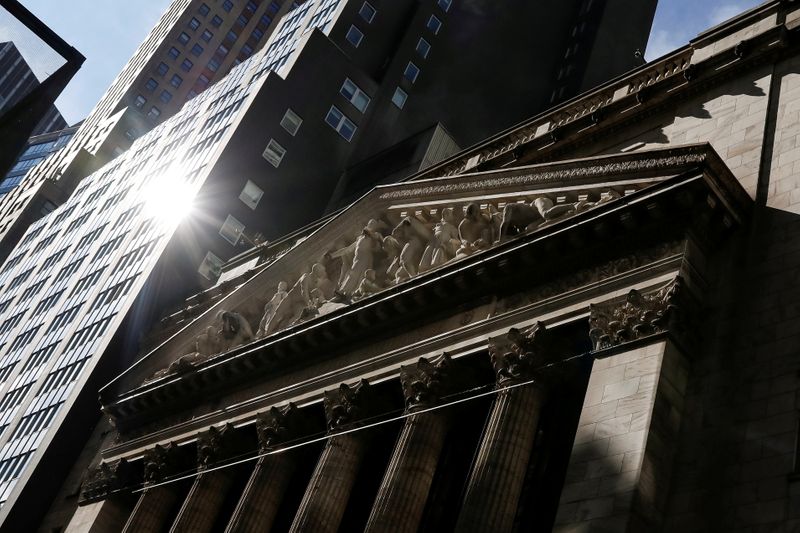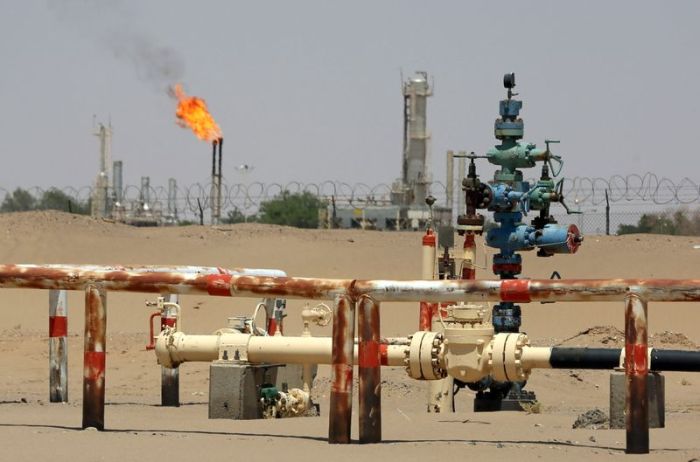NEW YORK (Reuters) -A gauge of stock prices across the world fell on Tuesday and oil prices also slipped as concern lingered over rising global COVID-19 cases and their effect on the global economic rebound.
The dollar index ticked up after touching its lowest level since March 3 and Treasury yields fell, though they still held above last week’s more than one-month lows.
India reported 1,761 deaths from COVID-19 overnight, its highest daily toll, while Canada and the United States extended a land-border closure for non-essential travelers.
On Wall Street, travel stocks weighed on sentiment, with airline and cruise operators falling sharply.
Some of the recent optimism about the leisure industry has waned as the reopening might take a bit longer than initially thought, said Michael James, managing director of equity trading at Wedbush Securities in Los Angeles.
“We’re not out of the woods yet when it comes to the COVID virus and getting to where global economies are reopening,” he said. “Some of that enthusiasm has diminished.”
The Dow Jones Industrial Average fell 256.33 points, or 0.75%, to 33,821.3, the S&P 500 lost 28.32 points, or 0.68%, at 4,134.94 and the Nasdaq Composite dropped 128.50 points, or 0.92%, to 13,786.27.
The pan-European STOXX 600 index lost 1.90% and MSCI’s gauge of stocks across the globe shed 0.85%.
Emerging market stocks lost 0.07%. MSCI’s broadest index of Asia-Pacific shares outside Japan closed 0.08% lower, while Japan’s Nikkei lost 1.97%.
After touching its lowest level in nearly seven weeks overnight, the dollar index rose slightly.
The currencies and interest rate markets could be relatively calm for another few weeks as the Federal Reserve and the European Central Bank each take their time adjusting their rate policies, said Mazen Issa, senior currency strategist at TD Securities.
“There really isn’t a strong catalyst in either direction this month to really break us out of ranges,” Issa said.
The dollar index rose 0.166%, with the euro unchanged at $1.2033.
The Japanese yen strengthened 0.08% versus the greenback at 108.09 per dollar, while sterling was last trading at $1.3939, down 0.31% on the day.
Tufts University economist Brian Bethune said the lower yields stood in contrast with their level close to 1.8% on March 30, reflecting worries that public health gains against the virus have stalled in Brazil, Canada and other countries.
“There’s a repricing of what the international environment is going to look like,” even though the U.S. economic recovery looks strong, Bethune said.
Benchmark 10-year Treasury notes last rose 11/32 in price to yield 1.5624%, from 1.599% late on Monday.
Concern over rising COVID-19 cases in India continued to weigh on the oil market.
“Given India’s position as a major crude oil importer … new restrictions would be very bad for the energy complex,” said Bob Yawger, director of energy futures at Mizuho.
U.S. crude recently fell 1.21% to $62.44 per barrel and Brent was at $66.50, down 0.82% on the day.
Spot gold added 0.5% to $1,778.80 an ounce. Silver gained 0.07% to $25.83.
Bitcoin last rose 2.4% to $57,030.36.
(Reporting by Rodrigo Campos; additional reporting by Laura Sanicola and David Henry in New York, Ross Kerber in Boston and Shivani Kumaresan and Medha Singh in Bengaluru; Editing by Dan Grebler and Richard Chang)



















